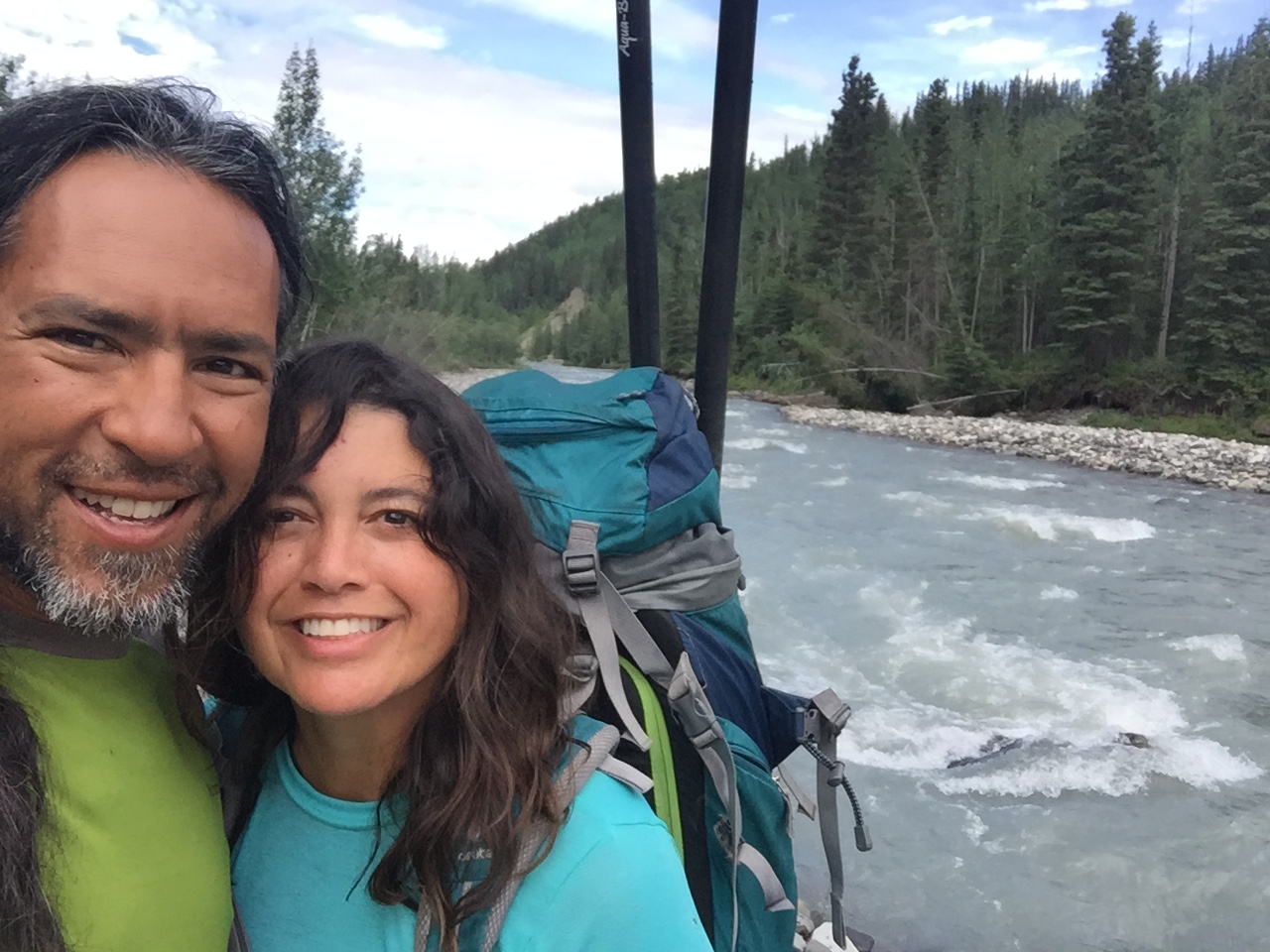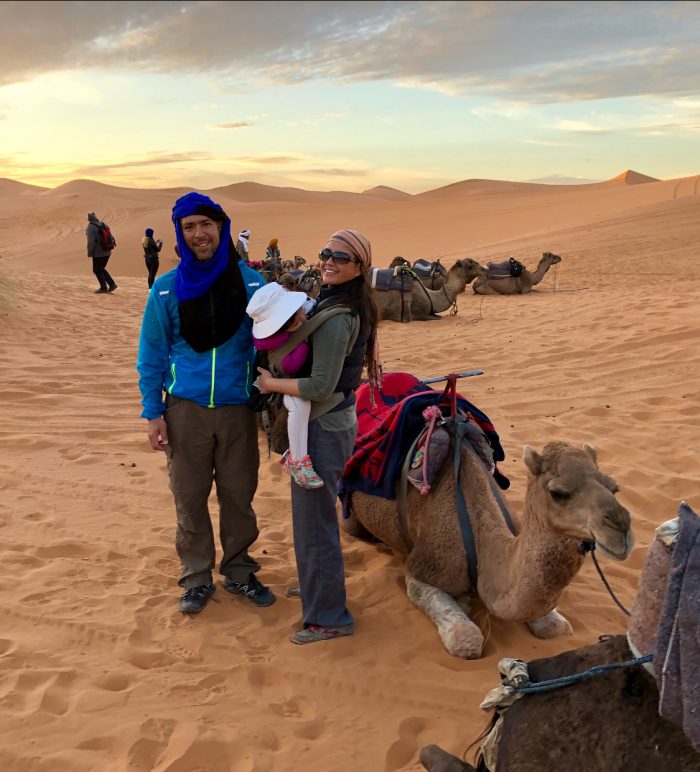“This moving away from comfort and security, this stepping out into what is unknown, uncharted and shaky—that’s called liberation” ~ Pema Chödrön
~
When I was a child, playing alone in the living room on my twelfth round of Pac Man after having read the “dirty” parts of Are You There God? It’s Me, Margaret for the fifth time, I made a promise to myself that when I grew up, I would never—ever—feel bored again.
Little did I know how freakin’ hard that would be.
While this promise ended up creating a full-blown addiction to adventure, what I didn’t expect was that adventure also helped me along my spiritual path in surprising ways.
Adventure is a personal word, and my definition of adventure doesn’t have to be yours.
We can feel adventure when climbing a mountain; overcoming a physical challenge like a marathon, or cancer; and when we risk our heart to be with our soul mate. I even feel adventure when I go to a new city, check out a new restaurant, try a new yoga pose, or learn a new skill.
Good ol’ Merriam Webster defines adventure as:
1: an undertaking usually involving danger and unknown risks
2: an exciting or remarkable experience
The main take-home is that adventure includes an element of something out of the ordinary.
Definitely not routine.
Definitely not boring.
When things get too familiar or routine, our minds grow dull, and the negative thought patterns and limiting beliefs that we all have are harder to break.
Things feel more permanent and real. We think we have “proof” that they are permanent and real because nothing seems to be changing.
But this isn’t true.
They only appear to not be changing because to be efficient, our brains prefer to travel down the same neural pathways and do things the same way they’ve always been done.
Therefore, we do the same thing, and we get the same results.
Nothing changes.
Then we say, “See! That’s how things really are!”
When we think things are static, that’s when we think we don’t have a choice. That’s when we suffer and get stuck. That’s when we give up.
It becomes the Same. Old. Sh*t. Every day.
The problem—and solution (and coolest thing ever)—is that things are not so permanent and “real,” and adventure helps us see that.
Our brains have an inherent need to find patterns, which help them work more efficiently. Because of this, simply doing things differently—like having an adventure—feels like a risk for most of us, and we try to avoid change.
Doing things differently also takes more energy, and the brain naturally resists change as a result.
This was more helpful when our lives needed us to primarily be in survival mode, but it is less helpful when we are trying to not just survive, but to evolve.
Adventure involves a change in how we do things. We don’t know what to expect, so it feels…weird. We have lost our sense of familiarity, and we perceive it as a risk, or as unsafe.
But let’s admit it…even though it is uncomfortable, we tend to feel most alive when we are on the edge, when we are stretching ourselves. This is because when we take those risks—whether to simply try something new, or do something terrifying—we grow!
We evolve.
We can feel it.
When we remain open to adventure and to change, it creates opportunities to see more possibilities than what we previously thought existed.
When we’ve stretched beyond our comfort zone, we are more courageous, and we are able to more readily step beyond our current limitations.
How does adventure shape our brains to help us think differently?
In the book Flex by Dr. Ben Fletcher, he cites a great study from the United Kingdom where they took a group of individuals and had them do several things:
Pick from a list of opposite characteristics every day, and be in that opposite for a set period of time (a few hours, the whole day). For example, outgoing to shy; likes to talk sports to likes to talk philosophy; optimistic to pessimistic, and so on. If you were normally outgoing, you’d spend the time that day “being” shy. If you liked to talk sports, you would spend the time brushing up on chatting about Kant or Descartes.
Eat a new type of food twice a week.
Read something they’ve never read before twice a week (didn’t have to be a book).
And guess what? Over 70 percent of them lost 11 lbs—at least.
WTF does that have to do with anything?
The conclusion was that by making different choices each day, they lost weight because they started to realize that everything was a choice—including what and how much they ate.
Some of the participants commented on how they would ask themselves why they were eating what they were, if they were actually really hungry, and if they really needed it.
The participants had been practicing different ways of being every day, which opened up new questions about why they were choosing to be in their “normal” state of being so much of the time.
Interestingly, this is the same theory that scientists have about one of the reasons why yoga—even non-strenuous styles of yoga—helps people lose weight: awareness.
When you do new things, when your mind is asked by necessity—on a regular basis—to change it up and not fall into the same pattern, it realizes things are not static. It realizes it is more malleable, that life is more malleable.
We then become open to more options in how we think, the thoughts we choose to focus on, the way we respond, and the way we choose to spend our time.
We are also likely to have less attachment to the way things are when we don’t do the same dang thing every day. This means we can adapt to change more readily and easily.
Too much change can indeed be stressful. But I’m just inviting us to juice things up a bit—add some smaller daily adventures to our lives.
Maybe a new salsa here and there, an adventure flick instead of that dark Euro drama (I can’t believe there’s a category for that on Netflix!), and oh yes—even a new sexual technique you’ve heard about. Or hey, go big and head to Mauritius instead of Hawaii this year!
Isn’t this all so exciting?! This means that our minds are malleable, and that there are methods to increase our successful evolution.
We can start to eliminate the negative thoughts that run in the back of our mind all day. We can create new opportunities and experiences. We can feel more alive and passionate about our life.
I guess that’s a good reason for why us humans do the crazy things we do. Maybe we didn’t know it when we were younger. Perhaps we thought we just didn’t want to be bored. Now there is a better understanding of the effect new experiences have on the mind.

I propose we become addicted to daily adventures.
Let’s get out there and do some new things. You don’t have to do what I do. Or what anyone else does. We all dance to our own drum. Do what works for you. Just do something new, something different—often.
Then, perhaps we can see how working with our mind becomes easier.
We can more likely respond instead of react.
“Create” instead of “fall victim to.”
Choose the compassionate and skillful reaction instead of the aggressive one we’ll later feel guilty or ashamed about.
Make healthier choices for our body.
Maybe even choose happiness.
We all need adventure. We need it to evolve ourselves—and our world. Let’s get us some.
~


 Share on bsky
Share on bsky





Read 1 comment and reply